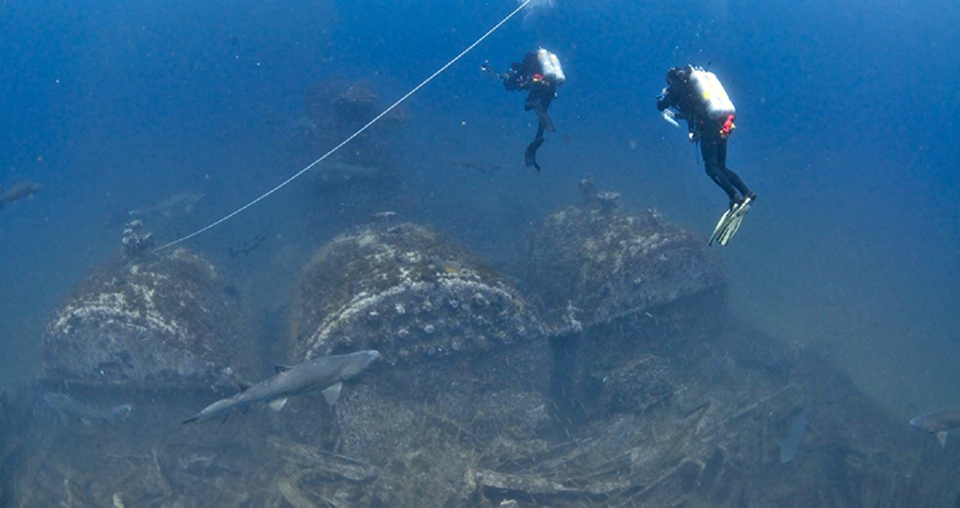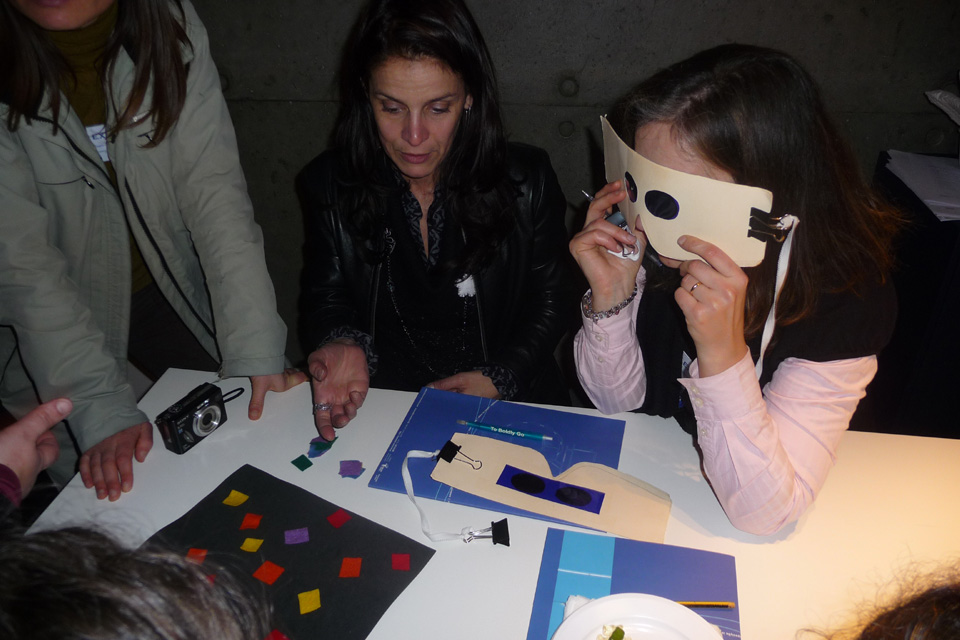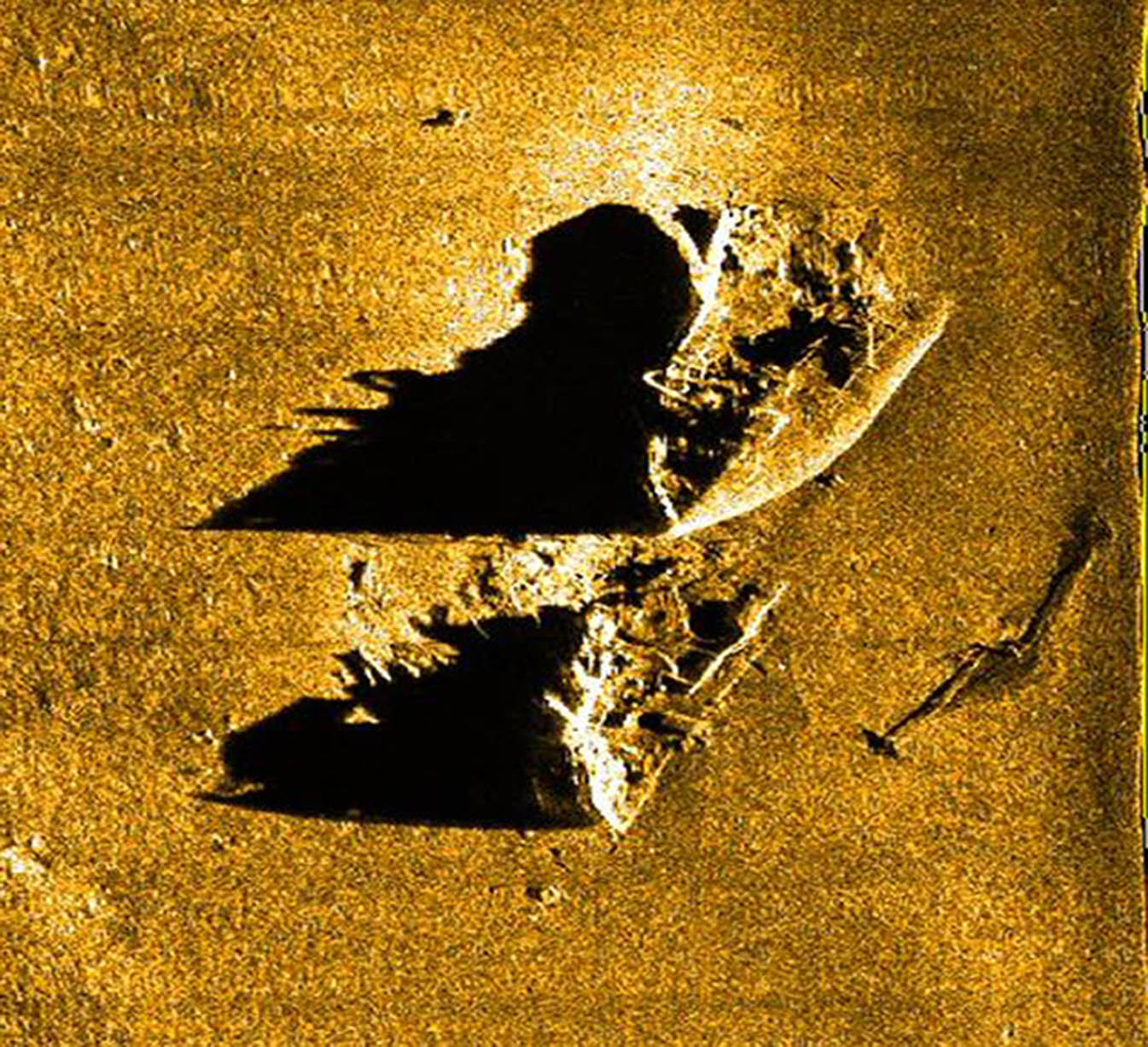 Potentially polluting shipwrecks pose a significant hazard to the environment, marine life, and human health. Wrecks which contain oil and whose hulls are corroding are being assessed for their damage and mitigation potential. Underwater munitions that were dumped at sea during the World Wars are also a threat to the marine environment. MMC is currently working on developing a course for undergraduate students that addresses these topics. The U.S. Coast Guard and the National Oceanic and Atmospheric Administration released a report in 2013 that identifies shipwrecks that are at risk for pollution events.
Potentially polluting shipwrecks pose a significant hazard to the environment, marine life, and human health. Wrecks which contain oil and whose hulls are corroding are being assessed for their damage and mitigation potential. Underwater munitions that were dumped at sea during the World Wars are also a threat to the marine environment. MMC is currently working on developing a course for undergraduate students that addresses these topics. The U.S. Coast Guard and the National Oceanic and Atmospheric Administration released a report in 2013 that identifies shipwrecks that are at risk for pollution events.
Teacher Professional Development
MMC facilitated Professional Development on-site workshops for middle and high school educators partner sites around the country as part of NOAA’s Office of Ocean Exploration and Research education program. Groups of 25-30 teachers participated in each workshop. As part of the Learning Ocean Science Through Ocean Exploration curriculum, workshop content focused on ocean science topics such as marine biology, marine geology, bioluminescence, exploration, and seabed mapping, as well as the use of the NOAA Ocean Explorer web site.
Through a NOAA grant to the Ocean Technology Foundation, MMC led efforts to implement NOAA Ocean Exploration workshops in Portugal and the Azores. Relationships between teachers and ocean researchers were catalyzed, and each of the four workshops contained classroom, lab, and field components.
Oceans and Human Health
What can we learn from a squid about our own nervous system?
How can substances found in marine sponges help to treat cancer?
MMC creates curricula and teaches online courses on Oceans and Human Health (OHH). These courses have been offered as professional development for teachers through the College of Exploration, and to undergraduate students at Goodwin College in Connecticut. The materials serve as a general introduction to a cutting-edge topic in ocean science: the relationship between oceans and human health. Global climate change, harmful algal blooms, marine biopharmaceuticals, and the use of marine organisms as biomedical models are some of the topics presented. Federal policies and organizations focusing on OHH are also explored. Potentially polluting shipwrecks and underwater munitions dumps may also impact human health.
Historic Shipwrecks – Online Course
Clients: U.S. Naval Academy and Ocean Technology Foundation
MMC developed and instructed the U.S. Naval Academy’s first and only online course, Historic Shipwrecks, which focuses largely on the methods, technologies, and policies involved in the Ocean Technology Foundation’s Search for the Bonhomme Richard. The course integrated science, history, technology and engineering into a multidisciplinary and interactive learning experience for midshipmen. Under the tutorship of MMC President Melissa Ryan, five midshipmen participated in the 2010 and 2011 expeditions to search for the Bonhomme Richard in the North Sea.






